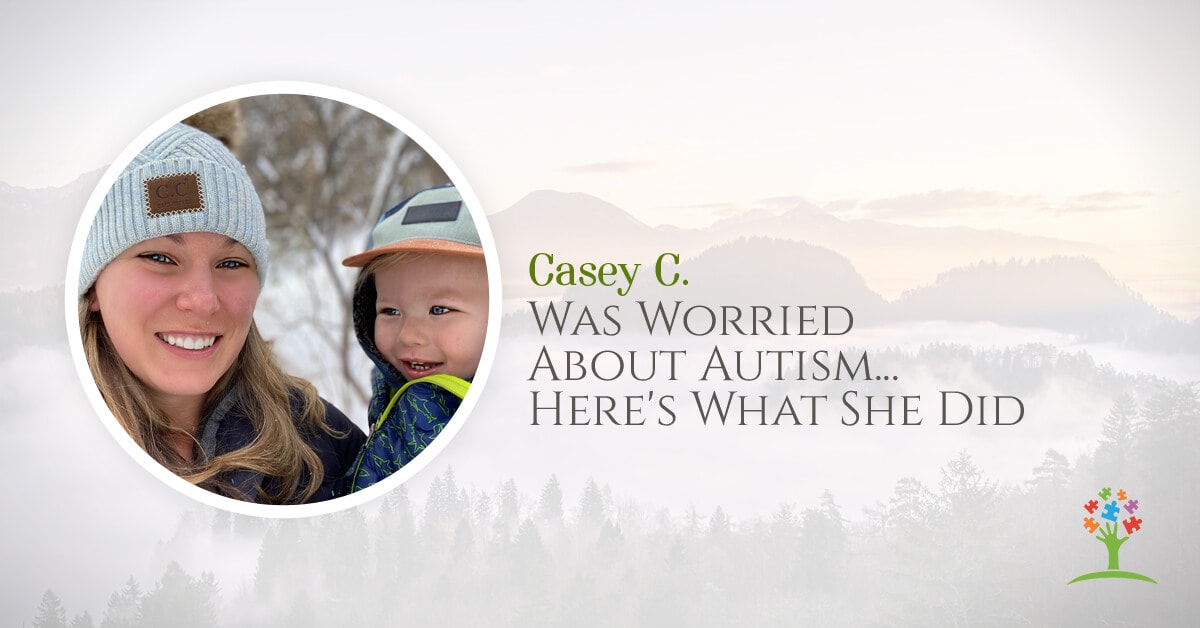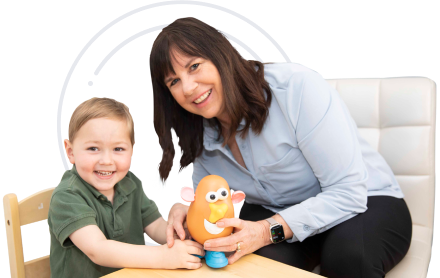Casey Was Worried About Autism… Here’s What She Did

Want to Learn how to Increase Talking & Decrease Tantrums in Children with Autism or Toddlers Showing Signs?
Want to start making a difference for your child or clients?

When Casey’s son was 16 months old, he could say words like “mama” and “duck”, and he could point at things that he wanted. During the pandemic, Casey began to see some regression in both his language and his skills, and she immediately knew that something was wrong and worried about autism. Many doctors, and even the state that Casey moved to, didn’t want to give a diagnosis when her son was so young, but Casey knew that early intervention was critically important.
If you see a loss in skills and language like Casey did, you should be more concerned than if you’re seeing developmental delays. Casey listened to her “mom instincts” and started searching for help. That’s when she found my book Turn Autism Around: An Action Guide for Parents of Young Children with Early Signs of Autism, and joined my book launch group. As Casey started to implement strategies from my book, her son began to answer to his own name again.
Casey has some good insights for parents who are worried about their child but can’t get a diagnosis for whatever reason. She suggests you:
- Take the fear out of your situation.
- Research the condition to take charge of your situation.
- Take some time to process how your life is going to change.
Although my book is written for parents who have or are waiting for an autism diagnosis, the tools I’ve included can help any typically developing child who is struggling with eating, sleeping, sensory processing issues, tantrums, or potty training. Pandemic regression is still possible for young children, but by using the strategies I teach in my book, you can help them catch up.
Pre-ordering Turn Autism Around will give you access to my Facebook group, an exclusive webinar with Temple Grandin, a free workshop, and more. This exclusive offer is only available until March 31st, and I look forward to seeing you inside my group.
You’ll Learn
- What realistic progress looks like for your child.
- Why you should stop using the child’s name when you make demands of them.
- How you can help your child even before a diagnosis, and why it’s never too early to find resources that can help them.
Resources